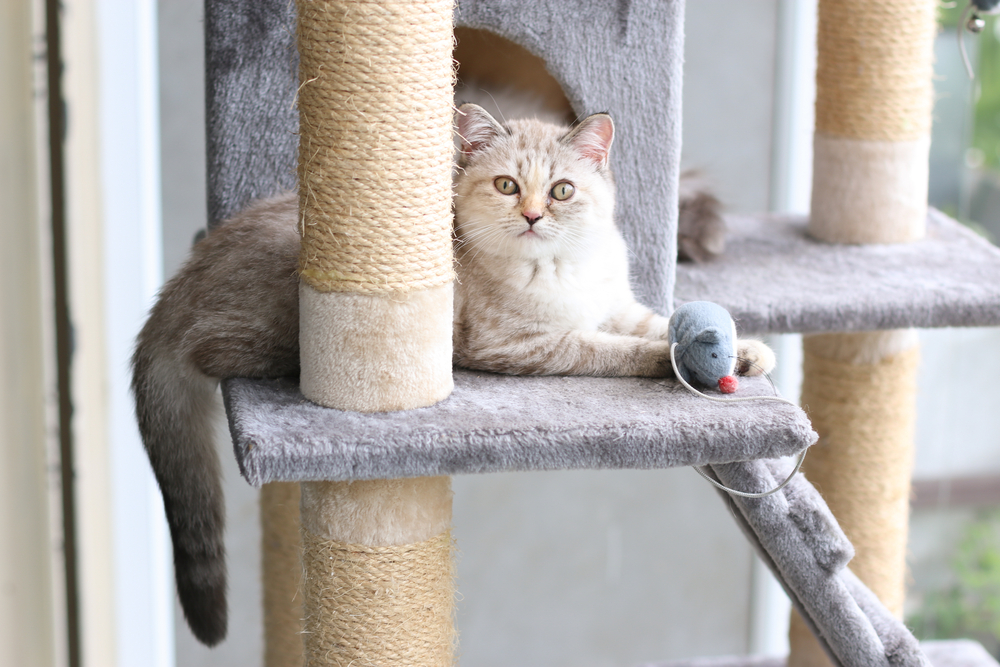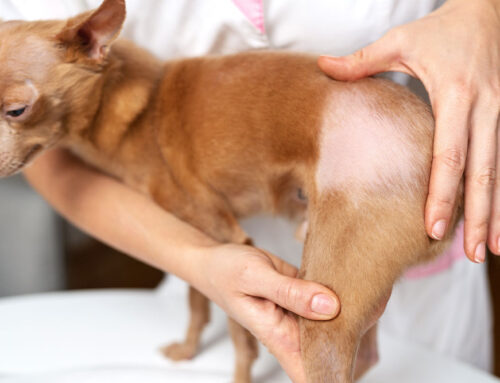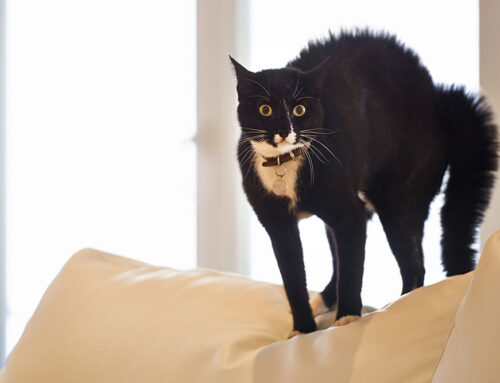As your furry pal reaches senior status, their needs to help ensure they experience happy, healthy golden years will change. While every pet is different, general guidelines exist as to when your pet becomes a senior. Cats are classified as seniors at 11 to 14 years of age, whereas dogs reach senior status at 7. However, keep in mind that larger dogs age more quickly, so a Great Dane may be a senior at 6 or 7, but a Chihuahua is only middle-aged at the same age. Ultimately, your pet’s genetics, nutrition, health issues, and environment play important roles in determining when they achieve senior citizenship. To keep your older pet in great shape as they reach their twilight stage of life, follow these six special care methods.
#1: Choose a diet that suits your senior pet’s needs
The metabolism of older pets generally slows, so they need fewer calories. Most commercial senior pet diets are lower-calorie than the adult versions, so consider making the switch when your pet reaches senior status. To help your furry pal feel full despite their reduced caloric intake, offer fresh fruits and veggies that are low in calories, but high in fiber. Frozen berries, apple slices, carrots, green beans, and dried sweet potatoes make excellent treats for senior pets.
Your senior pet may also benefit from supplements. Many older pets suffer from osteoarthritis, but joint health supplements can improve mobility, reduce inflammation, encourage cartilage repair, and slow further damage.
If your senior pet has developed a chronic health issue, such as heart, liver, or kidney disease, they may need a prescription diet. These diets are specially formulated to help support organ function, and promote optimal health.
#2: Encourage your senior pet to exercise daily
Since your senior pet’s metabolism dips with age, exercise is more crucial for helping ward off obesity. In addition, they’ve likely developed some joint pain, which can lead to inactivity and muscle mass loss. Regular, low-impact exercise will help keep your pet’s joints lubricated, and prevent muscle atrophy. Swimming is an excellent low-impact exercise, although your senior cat may not appreciate this activity. Instead, encourage your cat to pounce on their feather wand with low, slow movements, rather than whipping the wand around to entice overly vigorous play.
#3: Practice proper dental hygiene
Roughly three-quarters of all pets age 3 or over have some form of dental disease, which means your senior pet could likely use some periodontal care. Older pets may be more predisposed to dental disease development because of other health conditions, or a primary problem that causes painful gingivitis, tooth loss, and oral infections. Ideally, you should brush your pet’s teeth every day, but you can also add dental treats, chews, and supplements that the Veterinary Oral Health Council accepts. And, don’t forget to schedule your furry pal’s regular dental cleaning, to ensure every trace of plaque and tartar is removed above and below the gumline. Toothbrushing is the gold standard of at-home dental care, but cannot reach below the gumline, where much of the tooth structure resides. Additionally, a full oral exam allows our Tidmore Veterinary Hospital team to carefully evaluate your pet’s mouth for any disease signs, such as oral masses, inflamed areas, or discolored teeth.
#4: Make navigating your home easier for your senior pet
Older pets may develop osteoarthritis or other joint problems, which can make getting around harder for them. You can help by providing ramps to navigate the house, get up on the bed, or go outside. Ensure your cat’s litter boxes are easily accessible, and choose boxes with lower sides. Orthopedic beds, especially heated ones, can help keep your furry pal comfortable, and relieve joint pressure. Consider raising your pet’s food and water bowls, so they do not need to crouch down on arthritic elbows to reach these resources.
#5: Provide plenty of mental stimulation for your senior pet

Cognitive dysfunction can set in as your four-legged friend grows older, but you can delay, or perhaps prevent, the onset with adequate mental stimulation and environmental enrichment. Keep your pet’s mind young by brushing up on old tricks, or learning new skills through enrollment in a training or tricks class. Engage in lots of interactive play throughout the day, to keep your pet active—both mentally and physically. You can also swap out their food dish for a food puzzle, which will motivate your pet to hunt for, or figure out how to reach, their food inside a toy.
#6: Schedule more frequent wellness exams for your senior pet
Regular physical exams are essential to your pet’s health, and become more important as your pet ages. Age-related diseases can be subtle, and illness may easily be missed. But, regular exams and screening tests can detect changes in your pet’s normal values before disease progresses, affording a better outcome.
Has your furry pal reached senior status? Don’t miss their biannual wellness exam—contact our Tidmore Veterinary Hospital team to schedule an appointment.








Leave A Comment